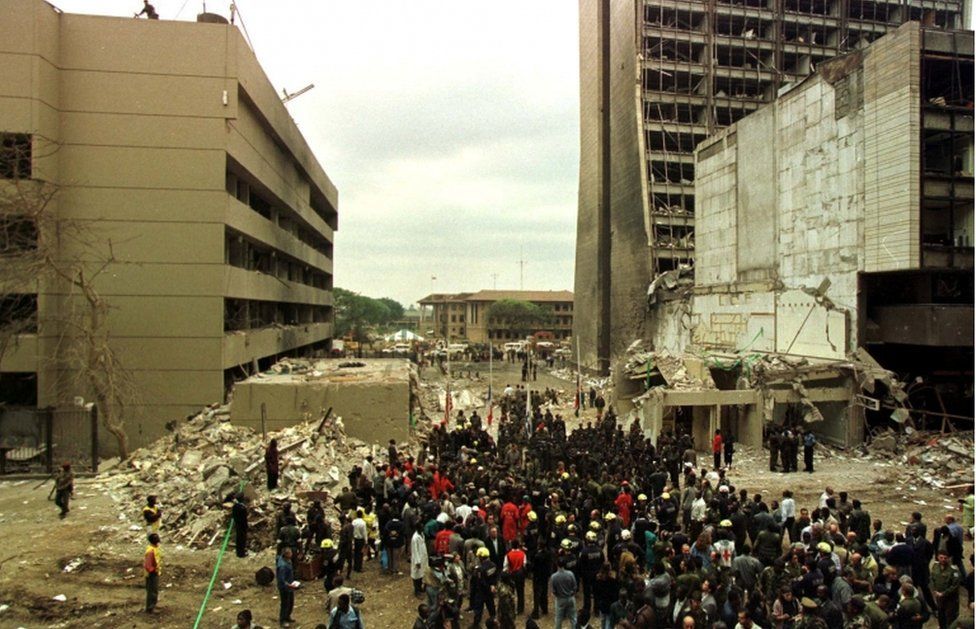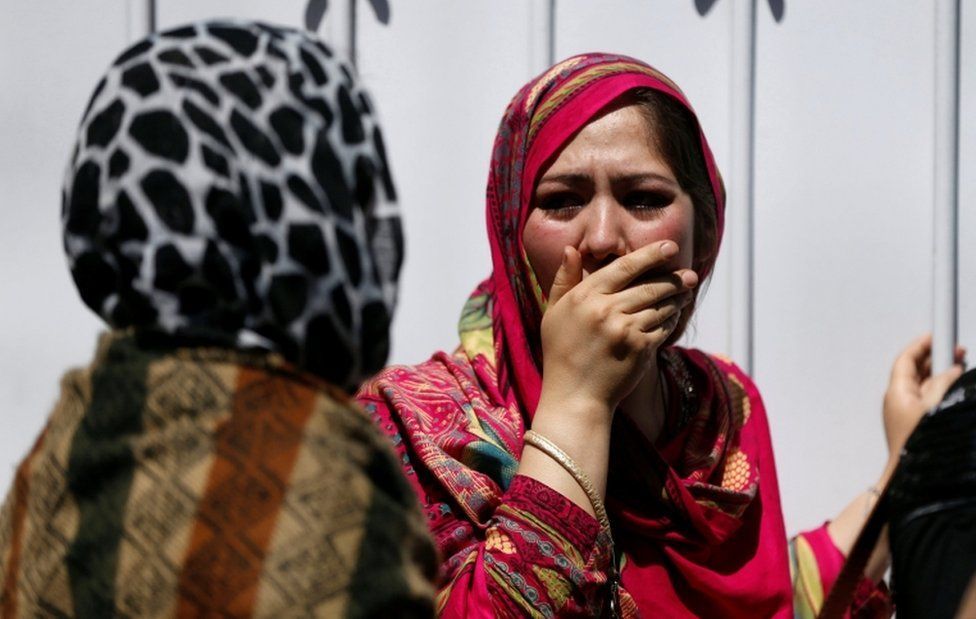
20 years in Afghanistan: Was it worth it?
The date is significant. It is exactly 20 years since Al-Qaida's 9/11 attacks on America, planned and directed from Afghanistan, that brought in the US-led Coalition that removed the Taliban from power and temporarily drove out Al-Qaeda.
The cost of this 20-year military and security engagement has been astronomically high - in lives, in livelihoods and in money. Over 2,300 US servicemen and women have been killed and more than 20,000 injured, along with more than 450 Britons and hundreds more from other nationalities.
But it is the Afghans themselves who have borne the brunt of the casualties, with over 60,000 members of the security forces killed and nearly twice that many civilians.
The estimated financial cost to the US taxpayer is close to a staggering US$1 trillion.
So the awkward question that has to be asked is: was it all worth it?
The answer depends on what you measure it by.
Let's just step back for a moment and consider why Western forces went in in the first place and what they set out to do. For five years, from 1996-2001, a designated transnational terrorist group, Al-Qaeda, was able to establish itself in Afghanistan, led by its charismatic leader Osama Bin Laden. It set up terrorist training camps, including experimenting with poison gas on dogs, and recruited and trained an estimated 20,000 jihadist volunteers from around the world. It also directed the twin attacks on the US embassies in Kenya and Tanzania in 1998, killing 224 people, mostly African civilians.

Al-Qaeda was able to operate with impunity in Afghanistan because it was protected by the government at the time: the Taliban, who had seized control of the whole country in 1996 following the Soviet Red Army withdrawal and subsequent years of destructive civil war.
The US, through its Saudi allies, tried to persuade the Taliban to expel Al-Qaeda, but they refused. After the 9/11 attacks in September 2001 the international community asked the Taliban to hand over those responsible - but again, the Taliban refused. So the following month an anti-Taliban force of Afghans known as The Northern Alliance advanced on Kabul, supported by US and British forces, driving the Taliban out of power and sending Al-Qaeda fleeing over the border into Pakistan.
This week senior security sources have told the BBC that since that time there has not been one single successful international terrorist attack planned from Afghanistan. So, going purely by the measure of international counter-terrorism, the Western military and security presence there succeeded in its objective.
But that, of course, would be a grossly over-simplistic measurement that ignores the enormous toll the conflict has taken - and still takes - on Afghans, both civilians and military. Twenty years on, the country is still not at peace. According to the research group Action on Armed Violence, 2020 saw more Afghans killed by explosive devices than in any other country in the world. Al-Qaeda, Islamic State (IS) and other militant groups have not disappeared, they are resurgent and doubtless encouraged by the imminent departure of the last remaining Western forces.

Back in 2003, on an 'embed' at a remote firebase in Paktika province with the US Army's 10th Mountain Division, I remember a veteran BBC colleague, Phil Goodwin, casting his doubts on what the legacy of the Coalition's military presence would be. "Within 20 years," he said, "the Taliban will be back in control of most of the South." Today, following peace talks in Doha and military advances on the ground, they are poised to play a decisive part in the future of the whole country.
Yet General Sir Nick Carter, Britain's Chief of Defence Staff, who served several tours there, points out that "the international community has built a civil society that has changed the calculus of what kind of popular legitimacy the Taliban want."
"The country is in a better place than it was in 2001," he says, "and the Taliban have become more open-minded."
Dr Sajjan Gohel from the Asia Pacific Foundation takes a rather more pessimistic view. "There is a real concern,' he says, "that Afghanistan could revert back into the breeding ground for extremism that it was in the 1990s." It is a concern shared by numerous Western intelligence agencies.
Dr Gohel predicts, "there will now be a new wave of Foreign Terrorist Fighters from the West travelling to Afghanistan for terrorist training. But the West will be unable to deal with it because the abandonment of Afghanistan will have already been completed."
This may not be inevitable. It will depend on two factors: firstly, whether a triumphant Taliban permits the activities of Al-Qaeda and IS in areas under its control, and secondly the degree to which the international community is prepared to tackle them when it no longer has the resources in the country.
So the future security picture for Afghanistan is opaque. The nation that Western forces are leaving this summer is far from secure. But few could have predicted, in the heady days following 9/11, that they would stay as long as two decades.
When I look back now on the various reporting trips I made to Afghanistan, embedding with US, British and Emirati troops, one memory stands out above all the rest. It was at that US Army firebase just 3 miles (6km) from the border with Pakistan, and we were squatting on ammunition boxes in a mudwalled fort beneath a sky filled with stars. Everyone had just feasted on Texan ribeye steaks flown in from Ramstein in Germany - yes, this really happened - and the volley of Taliban rockets that later struck the base had yet to arrive.
A 19-year-old soldier from upstate New York told us how he'd lost several of his buddies during his time there. "If it's my time, it's my time," he shrugged. Then someone got out a guitar and gave a word-perfect rendition of the Radiohead song, Creep. It ended with the words, "What the hell am I doing here? I don't belong here." And I remember thinking at the time: no, we probably don't.










